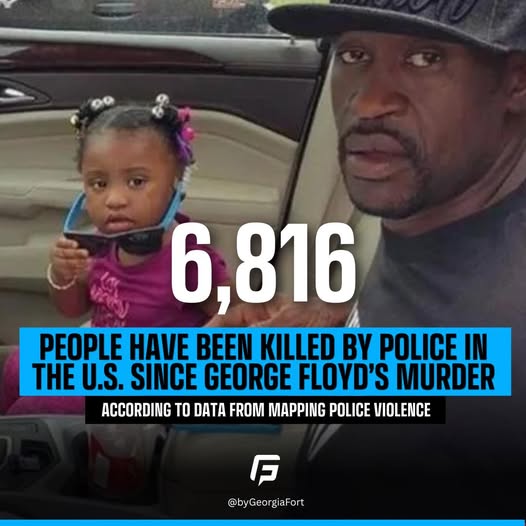Five Years After George Floyd’s Murder: Reckoning Without Reform
It has now been five years since George Floyd was murdered on a Minneapolis street—an act of police violence captured on camera and witnessed by millions across the globe. His death ignited protests, conversations, and commitments unlike anything seen in recent memory. In that singular moment, the world seemed to stand still and promise: This time will be different.
In the days and months that followed, corporations rebranded their missions, government officials promised reforms, and a wave of Diversity, Equity, and Inclusion (DEI) roles were created overnight. “Black Lives Matter” transitioned from grassroots activism to a marketable slogan. Institutions rushed to make statements of solidarity. But beyond the noise, the slogans, and the press releases, the deep, structural change that was so desperately needed—and widely promised—never came.
Since George Floyd’s murder in 2020, at least 6,816 people have been killed by police in the United States. That number, staggering in its scope and scale, tells the truth that empty promises cannot hide: accountability in policing remains the exception, not the rule. Police violence, especially against Black Americans, continues with troubling frequency and disproportionate impact.
I was one of only two journalists allowed in the courtroom the day Derek Chauvin was sentenced. I watched as the judge handed down a 22.5-year prison sentence and listened as Floyd’s family and prosecutors spoke about pain, justice, and the meaning of accountability. It was a solemn, historic moment. But even then, it was clear that justice is not a singular verdict—it is a system. And that system is still failing.
Today, we must reckon with a painful reality: what was widely hailed as a turning point was, in many ways, a momentary pause—a brief disruption of a system that quickly resumed its usual course. The reforms that were promised have largely stalled. Qualified immunity still shields officers from accountability in many cases. Police budgets continue to grow in many cities, often dwarfing investments in community care, mental health, education, and housing. The calls for reimagining public safety have been met with political backlash and institutional resistance.
Meanwhile, the lives of Black Americans remain shaped by a justice system that often treats them as threats before it sees them as people. The trauma, the fear, the generational burden of systemic racism—it all remains. And so does the demand for something better.
Data doesn’t lie. It reveals a hard, sobering truth that many would rather ignore: for all the attention George Floyd’s murder brought to the surface, for all the conversations about racial justice, the United States has not changed in the way it claimed it would. Five years later, Black communities are still waiting for justice—not just as an outcome, but as a condition of living.
As we mark this grim anniversary, it is not enough to remember George Floyd’s name in hashtags or murals. His legacy—like that of so many others—demands something more. It demands systems built on fairness, safety, and dignity. It demands that justice be more than a courtroom moment, but a daily reality experienced by all people, regardless of race or income or zip code.
The fight for that justice continues. And so must we.
